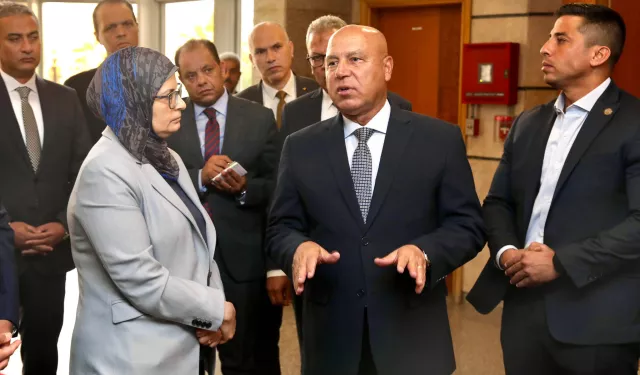Egypt’s latest railway disaster has reignited questions about the government’s ability to deliver on long-promised safety reforms, after a passenger train derailed on the Matrouh-Cairo line on Saturday, killing three people and injuring more than 100.
Transport and Industry Minister Kamel Al-Wazir insisted the railway infrastructure was sound.“The tracks are 100 percent safe and in excellent condition, and the locomotive has been completely refurbished with Russian air-conditioned carriages,” he said in a Saturday night call to MBC Egypt, “In my personal estimation, the cause of the accident is strange.”
Al-Wazir also said passengers regularly express satisfaction with the service. “We are doing our duty and carrying our passengers. They send us videos every day thanking us for the trains. But this is life—we work and leave the rest to God.”
On Saturday, the Ministry of Transport said seven carriages of train No. 1935 left the tracks between Fuka and Galal stations in Matrouh governorate, with two overturning. Egyptian National Railways promised to dismiss anyone found responsible.
The Health Ministry confirmed three deaths and 103 injuries. 37 ambulances rushed to the site.
By Saturday evening, 87 patients had been discharged from Dabaa and Ras El-Hekma hospitals. Six were transferred to Al-Alamein, and 16 remained under observation, three of them in intensive care.
Al-Wazir said he had checked personally on survivors and expected most to leave hospitals by Sunday.
Egypt’s railway system, one of the oldest in the region, has been plagued by chronic underinvestment and mismanagement. Fatal accidents remain common despite successive modernization pledges.
In September 2024, two passenger trains collided in Zagazig, northeast of Cairo, killing three people, including two children, and injuring around 40. The following month, a locomotive crashed into the rear of a Cairo-bound passenger train in Minya, southern Egypt, killing at least one person, injuring several others, and sending two carriages into a watercourse. Again in March 2025, eight people died when a train hit a minibus at an unauthorized level crossing in Ismailia.
Statistics from the Central Agency for Public Mobilization and Statistics highlight a worsening trend. Severe accidents rose from 289 in 2020 to 752 in 2024, even as the total number of reported train crashes declined in 2023.
President Abdel Fattah El-Sisi has acknowledged the problem. In 2018 he said that overhauling the railways would require at least 250 billion Egyptian pounds (about $8 billion at that time) yet much of that investment has not materialized on the ground.
Saturday’s derailment underscores how systemic safety gaps persist. While officials point to newly refurbished carriages and upgraded tracks, the recurrence of deadly crashes has eroded public trust.
Survivors and families of victims now wait for an investigation to determine whether human error, equipment failure, or deeper institutional flaws are to blame.
